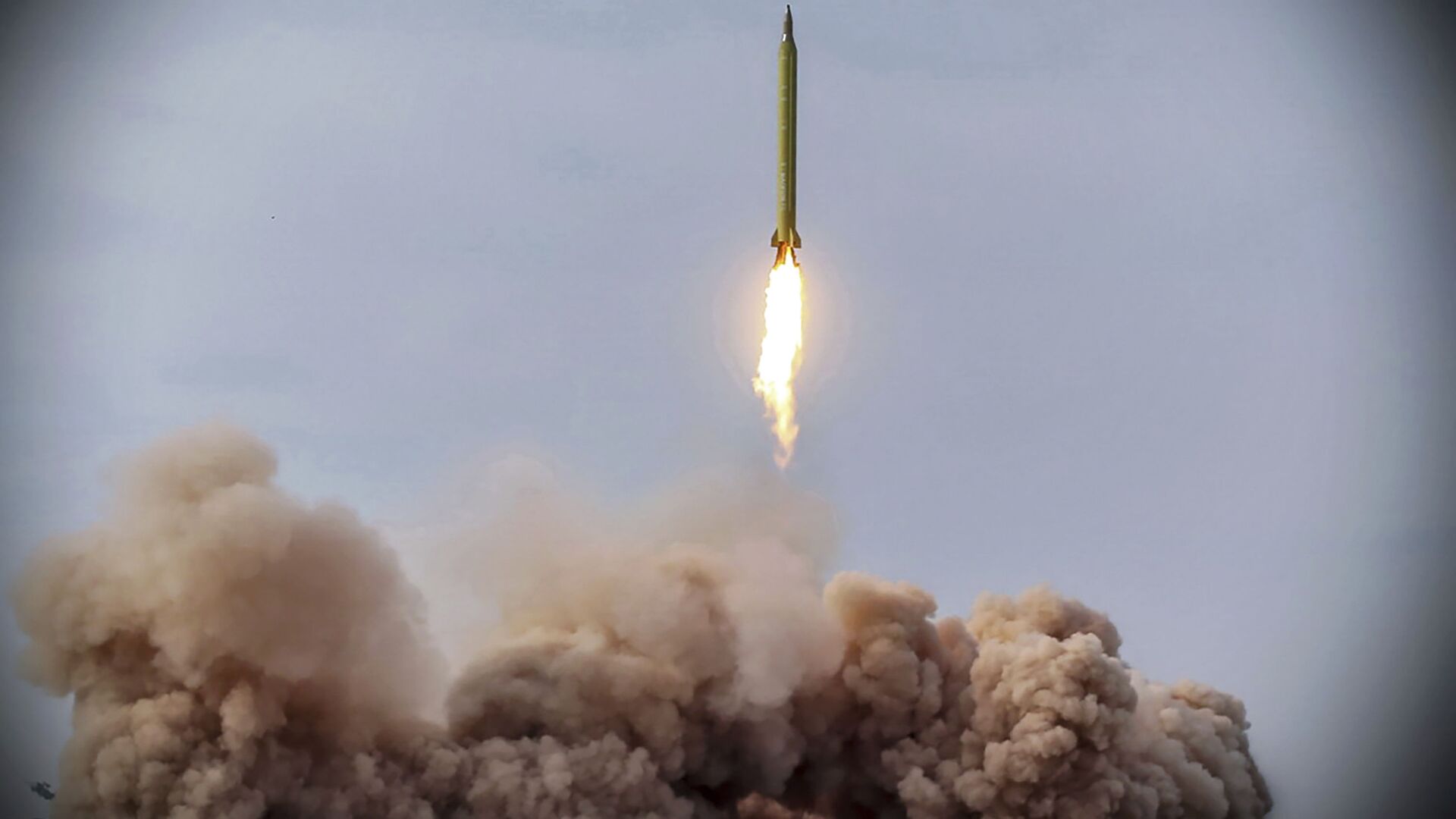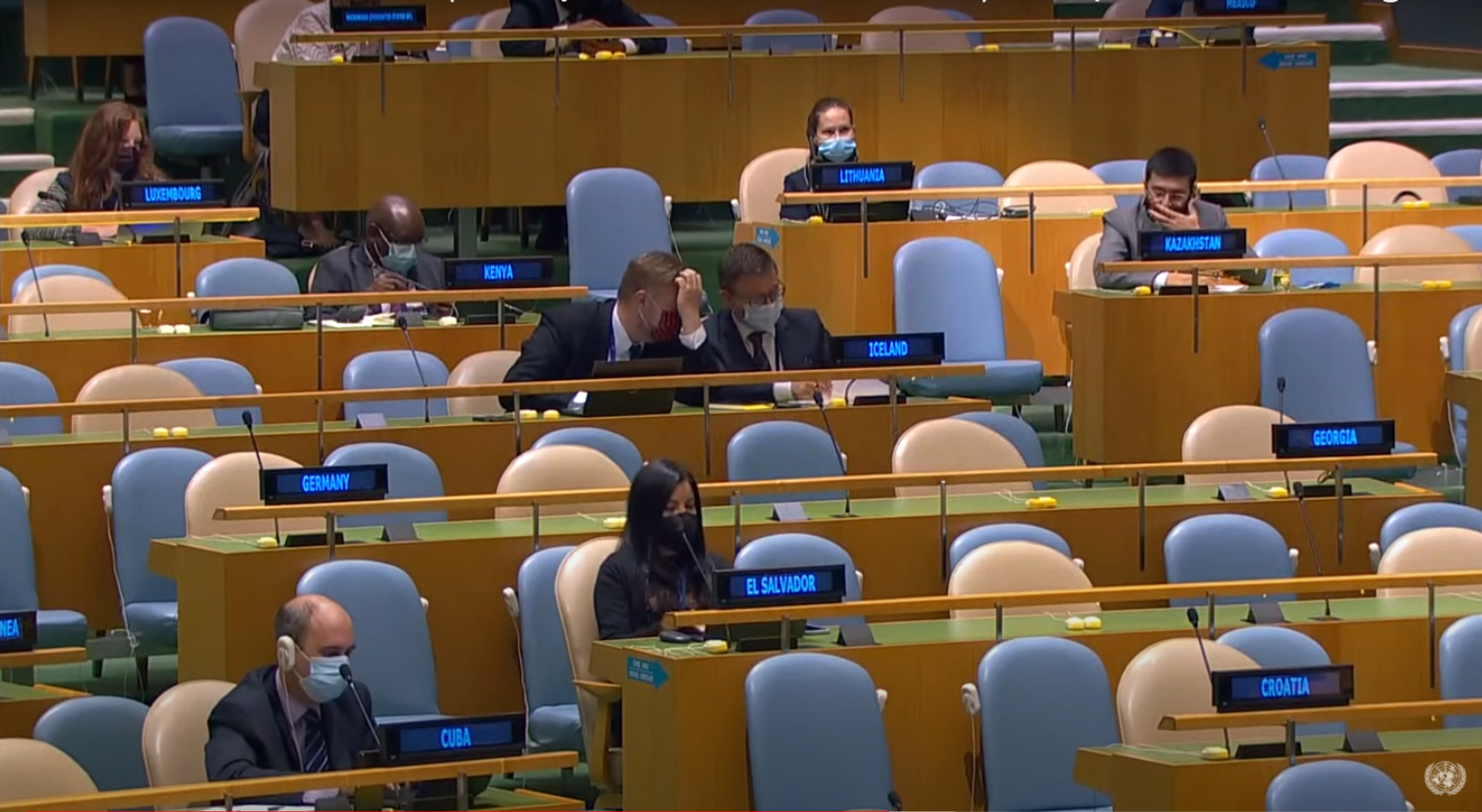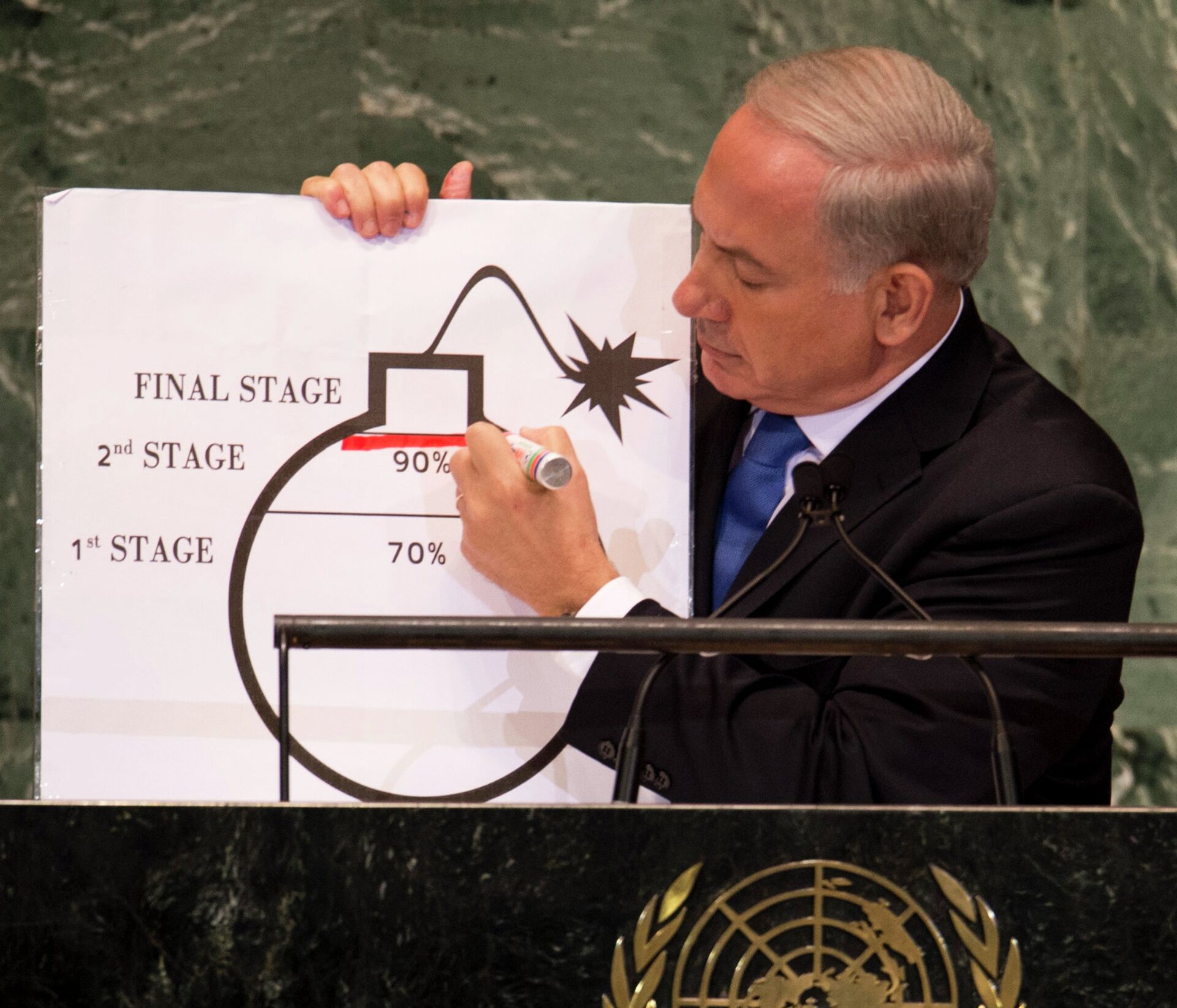Israeli PM Bennett Accuses Iran of Seeking to Dominate Mideast 'Under Nuclear Umbrella'
13:19 GMT 27.09.2021 (Updated: 16:48 GMT 27.09.2021)

© AP Photo
Subscribe
Tel Aviv has spent over a decade accusing Tehran of secretly pursuing nuclear weapons, and has threatened to take unilateral military action against the Islamic Republic to prevent it building a nuke. Iran denies that it has any plans to pursue nukes, and has urged the international community to pressure Israel to dismantle its own WMDs.
Israeli Prime Minister Naftali Bennett has accused Iran of seeking to "dominate" the Middle East using nuclear weapons.
"Iran's great goal is crystal clear to anybody who cares to open their eyes. Iran seeks to dominate the region and seeks to do so under a nuclear umbrella," Bennett said, speaking to a mostly empty auditorium at the United Nations General Assembly on Monday.
"Over the past few years Iran has made a major leap forward in its nuclear R&D, its production capacity, its enrichment. Iran's nuclear weapon programme is at a critical point. All red lines have been crossed, inspections ignored, all wishful thinking proven false. Iran is currently violating the [International Atomic Energy agency's safeguard agreements and its getting away with it. They harass inspectors and sabotage their investigations, and they're getting away with it. They enrich uranium to the level of 60 percent, which is only one step short of weapons-grade material and they're getting away with it," Bennett complained.

Screengrab of moment from Prime Minister Bennett's UN speech, showing a mostly empty auditorium at the UN building in New York.
© Photo : YouTube / United Nations
Suggesting that Iran's nuclear programme had hit a "watershed moment," the Israeli prime minister warned that Tel Aviv's "tolerance" has run out. "Words do not stop centrifuges from spinning," he said. "Israel will not allow Iran to acquire a nuclear weapon. And I want to tell you something – Iran is much weaker, much more vulnerable than it seems," Bennett added, emphasizing Tel Aviv and its allies can and would "prevail" against Tehran.
Alleged Terror Ties
Bennett went on to accuse Iran of being the root of all evil in the Middle East. "For the past three decades, Iran spread its carnage and destruction around the Middle East, country after country. Lebanon, Iraq, Syria, Yemen, Gaza. What do all these places have in common? Well, they're all falling apart, their citizens hungry, their economies collapsing. Like the Midas touch, Iran's regime has the mullah touch. Every place Iran touches – fails!" the prime minister alleged.
Bennett accused Iran of sponsoring terrorism in the region and delivering drones and other weapons to militants to attack US forces in Iraq, Saudi oil refineries, and commercial ships at sea.
Back-and-Forth Insults at the UN
At his own speech to the UN General Assembly last week, Iranian President Ebrahim Raisi dubbed Israel an "occupier Zionist regime" and accused Tel Aviv of being the world's biggest sponsor of "state terrorism," "whose agenda is to slaughter women and children in Gaza and the West Bank." Raisi spent most of his speech criticising the United States, however, blasting the US "hegemonic system" and suggesting that the "project of imposing Westernised identity" had "failed miserably," causing only "blood spilling and instability, and ultimately defeat and escape" in countries like Afghanistan.
What's Old is New Again
PM Bennett's comments on Iran's alleged pursuit of nuclear weapons are not new. His predecessor, Benjamin Netanyahu, famously appeared at the General Assembly in 2012 with a cartoon bomb on a poster board, suggesting that Tehran was just weeks or months away from building a nuke. Time passed, and these "Iranian nukes" never materialised, but Israeli officials have continued to allege that the Islamic Republic is on the brink of nuclear weapons status for years on end.
Iran denies having any intention to create nuclear arms, or weapons of mass destruction of any kind, and destroyed its stocks of chemical weapons in the 1990s before joining the Chemical Weapons Convention in 1997. The country's successive supreme leaders – Ruhollah Khomeini and Ali Khamenei – have each issues religious rulings banning weapons of mass destruction as incompatible with Islam.
Iranian officials have blasted Western governments over their alleged "shameful" double standards when it comes to Israel's nuclear weapons, including an utter lack of pressure to force Tel Aviv to join the Nuclear Non-Proliferation Treaty and disarm, or to abide by the NPT and other international treaties.
Israeli officials do not formally comment on whether the country has nuclear arms, instead pursuing a policy of "nuclear ambiguity." At the same time, Israel reserves itself the right to bomb, sabotage or otherwise act to stop activities of any Middle Eastern nation it thinks has an active nuclear weapons programme. To that end, the country bombed an Iraqi nuclear reactor in 1981, struck an alleged nuclear research facility in Syria in 2007, and assassinated at least half-a-dozen Iranian nuclear scientists. The Stockholm International Peace Research Institute estimates that Israel has about 80 nukes, with other estimates suggesting the country's arsenal may number up to 400 warheads.

